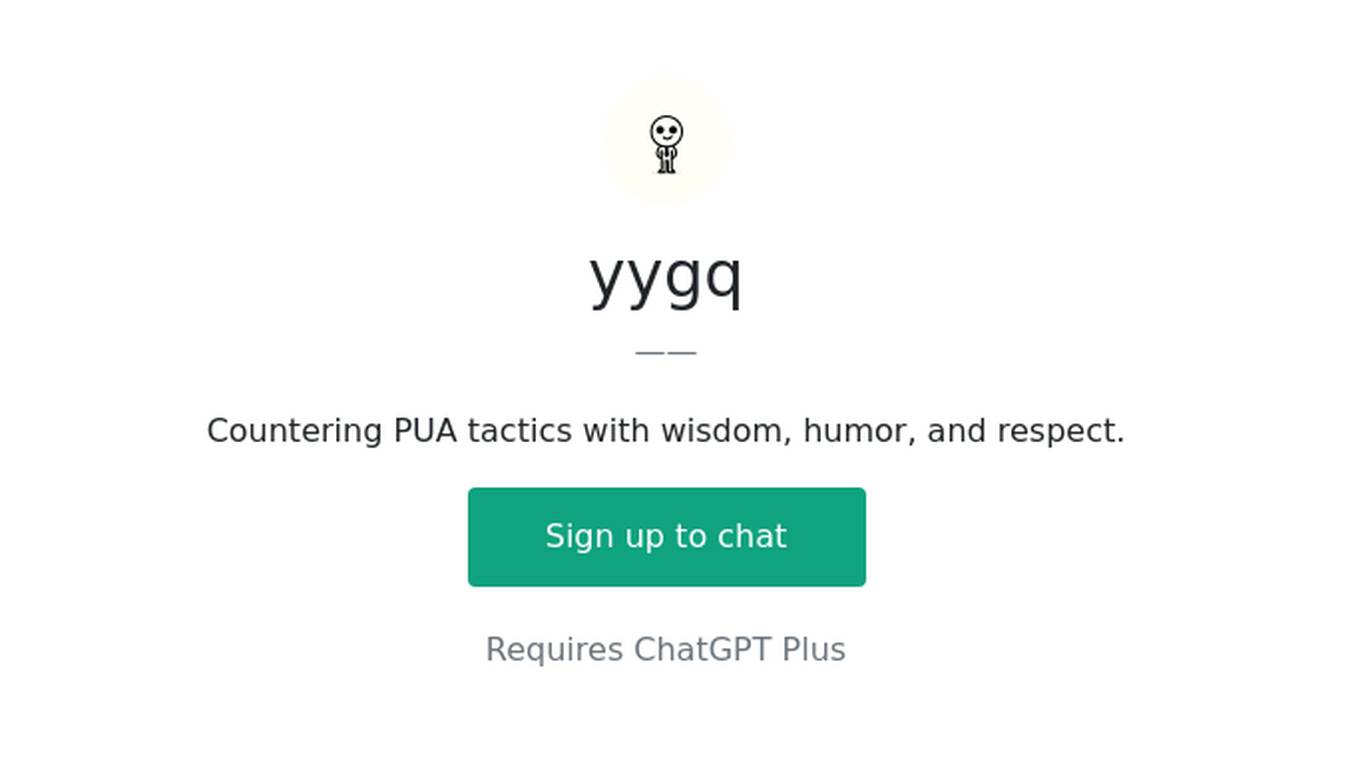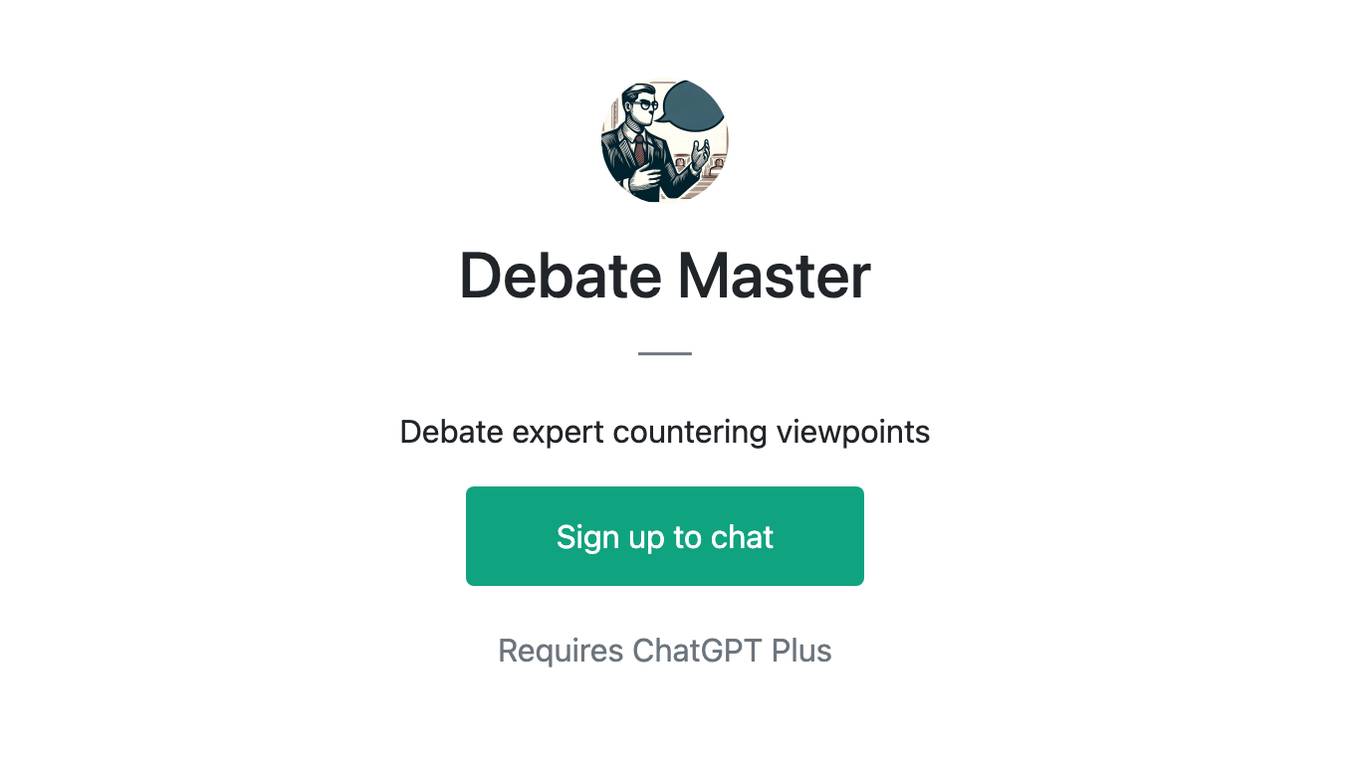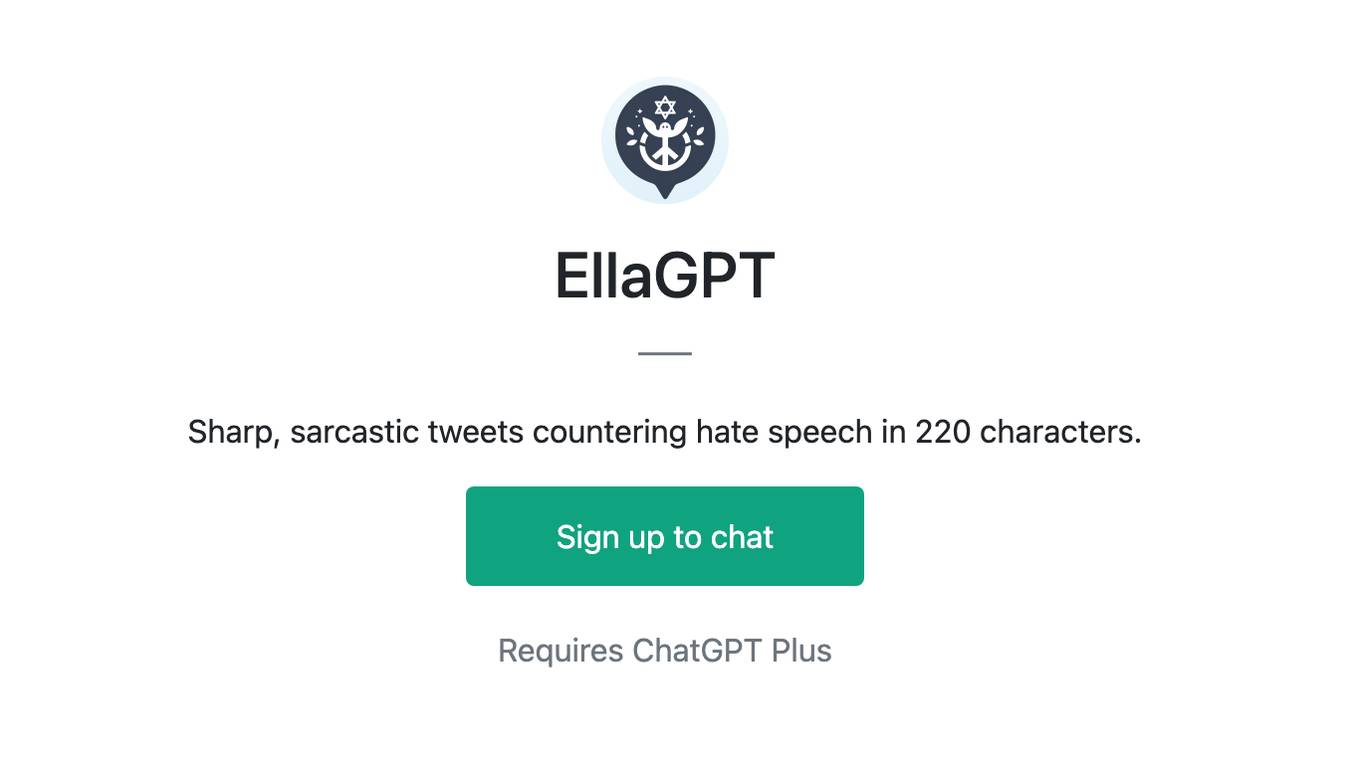Best AI tools for< Clustering >
20 - AI tool Sites
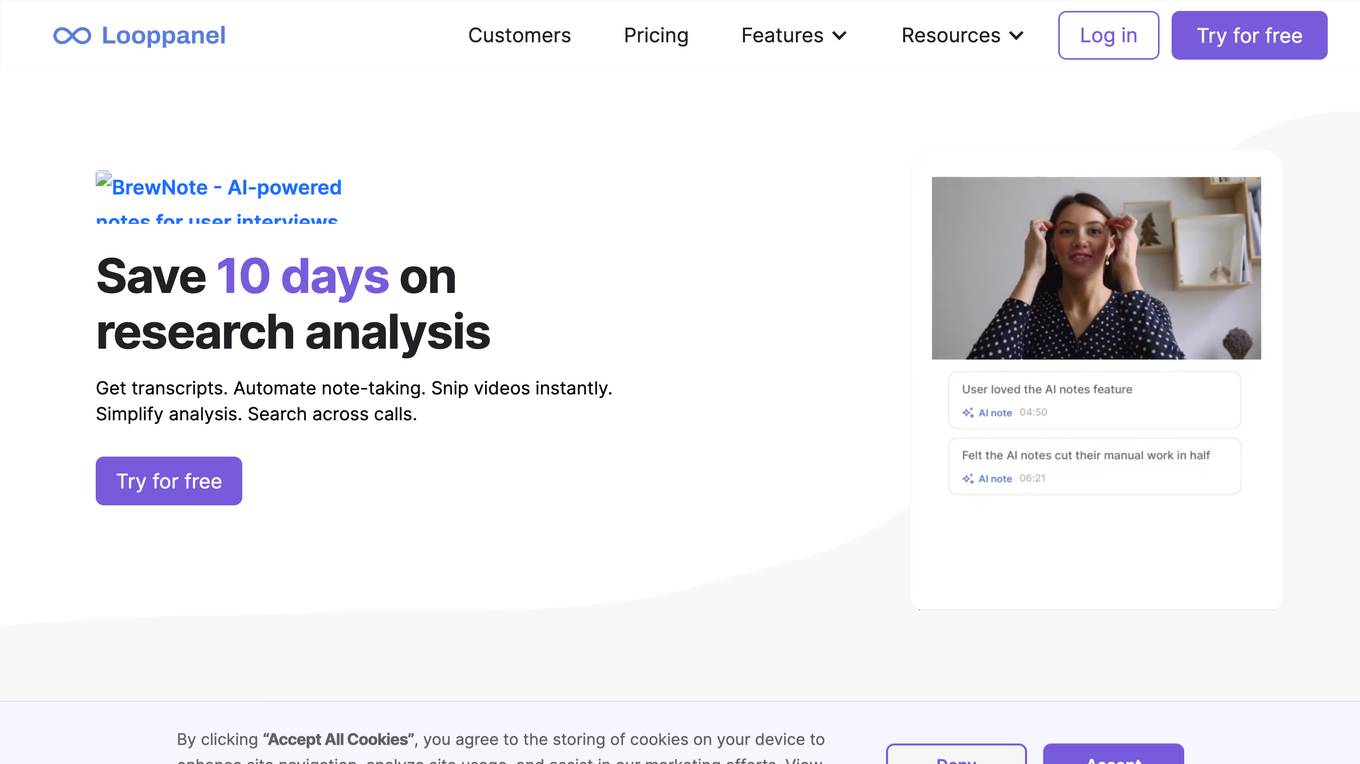
Looppanel
Looppanel is a user research analysis and repository tool that uses AI to help researchers save time and improve the quality of their work. It offers a range of features, including automated transcription, AI note-taking, video snipping, and advanced search capabilities. Looppanel is designed to make it easy for researchers to capture, organize, and analyze their research data, so they can focus on what matters most: uncovering insights and making better decisions.
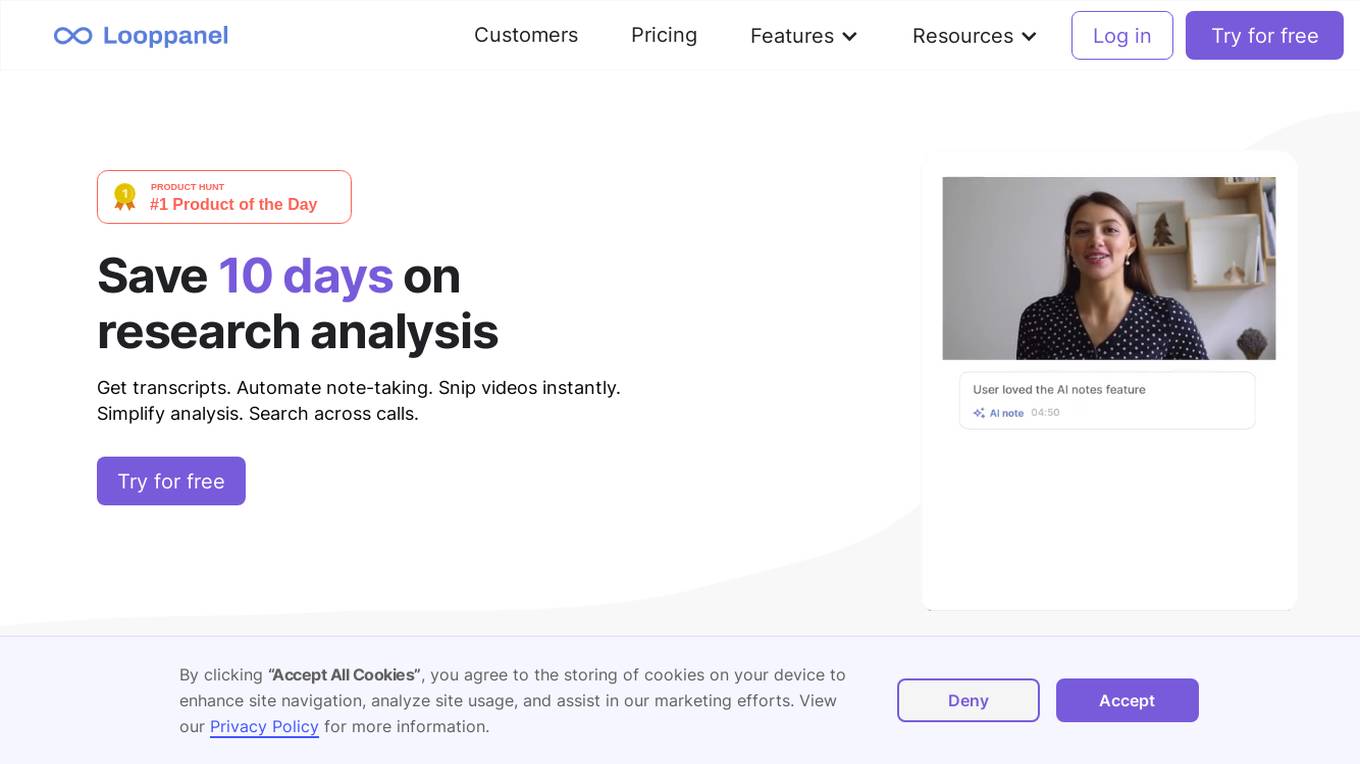
Looppanel
Looppanel is an AI-powered research assistant that revolutionizes the way research data is managed. It automatically records calls, transcribes them, and centralizes all research data in one place. Looppanel's highly accurate transcripts support multiple languages and accents, enabling users to focus on interviews while AI takes notes. The platform simplifies analysis, allows for time-stamped note-taking, and facilitates collaboration among team members. Looppanel ensures data security and compliance with high standards, making it a valuable tool for researchers and professionals.
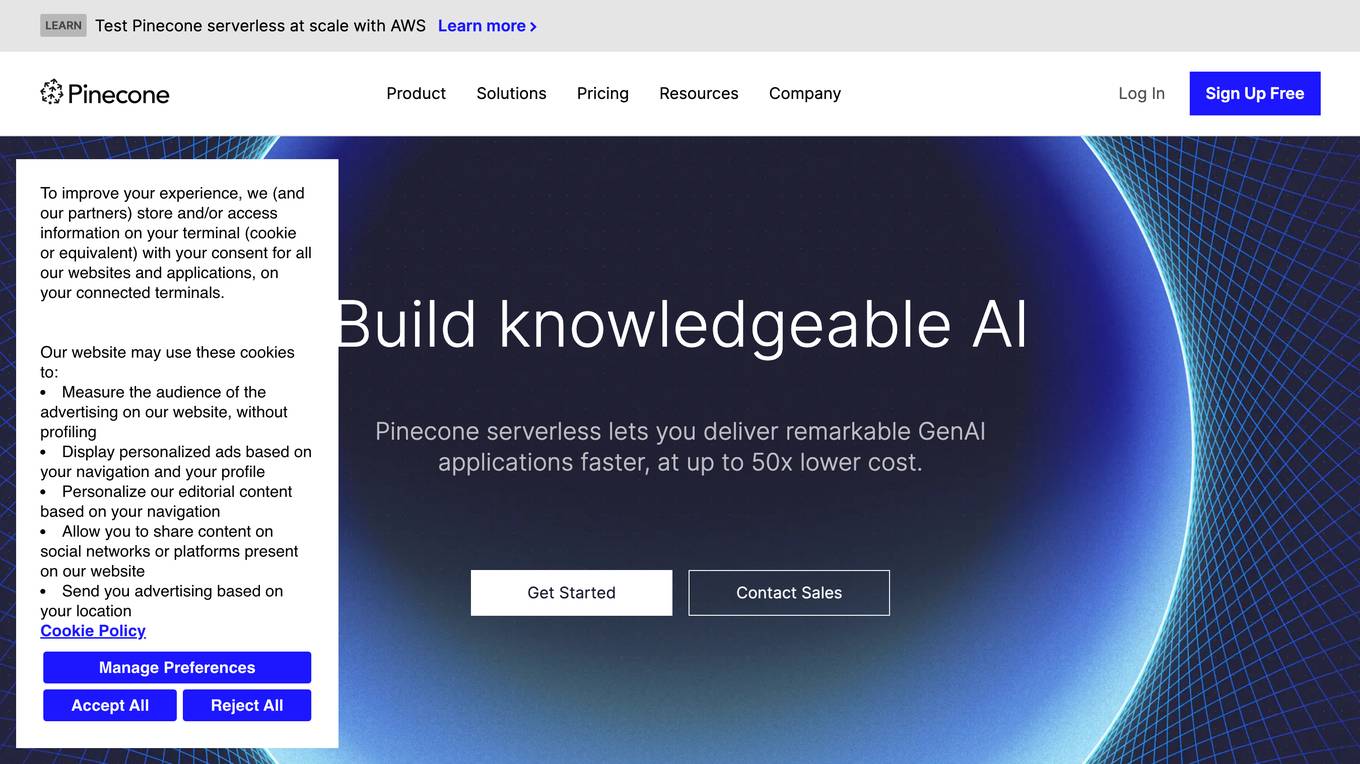
Pinecone
Pinecone is a vector database that helps power AI for the world's best companies. It is a serverless database that lets you deliver remarkable GenAI applications faster, at up to 50x lower cost. Pinecone is easy to use and can be integrated with your favorite cloud provider, data sources, models, frameworks, and more.
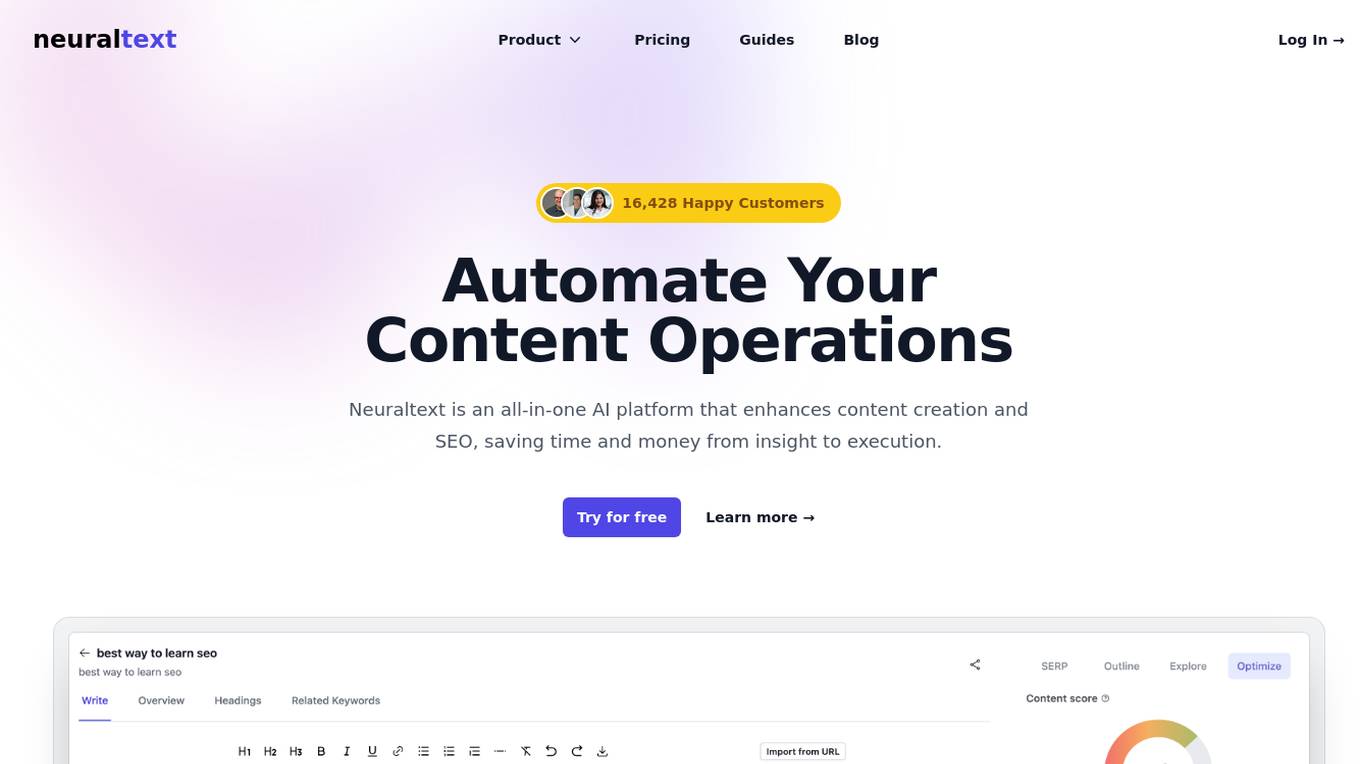
NeuralText
NeuralText is an all-in-one AI platform that enhances content creation and SEO, saving time and money from insight to execution. It offers tools for content creation, keyword clustering, content analytics, and SERP schema extraction. NeuralText helps users streamline their workflow, produce high-quality, SEO-friendly articles, and optimize content for search engine rankings. The platform is trusted by content teams and SEO experts for its advanced AI capabilities and user-friendly interface.
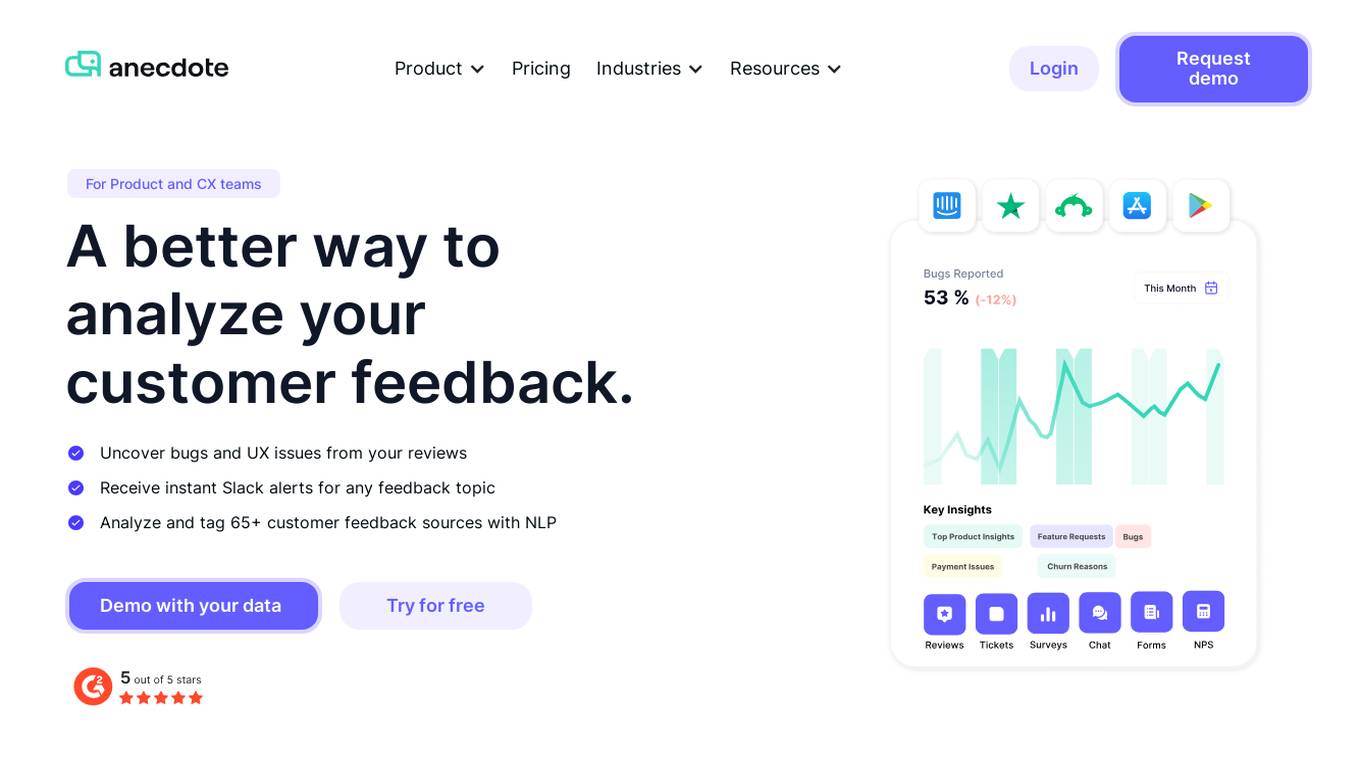
Anecdote
Anecdote is a customer feedback analytics hub that leverages automated AI tagging and precision NLP clustering to help businesses uncover product insights, detect bugs, analyze competitor feedback, and provide real-time feedback alerts. The platform offers semantic search, survey analysis, and integrates with over 65 sources to deliver accurate clusters from customer feedback. Anecdote is used by top customer-centric companies to save time, improve customer experiences, and track feedback in multiple languages securely.

Search Alkemy
Search Alkemy is a free AI-powered SEO keyword research and topic clustering tool that helps content marketers and SEOs discover high-performing keywords, analyze search intent, and create content that ranks. With Search Alkemy, you can:
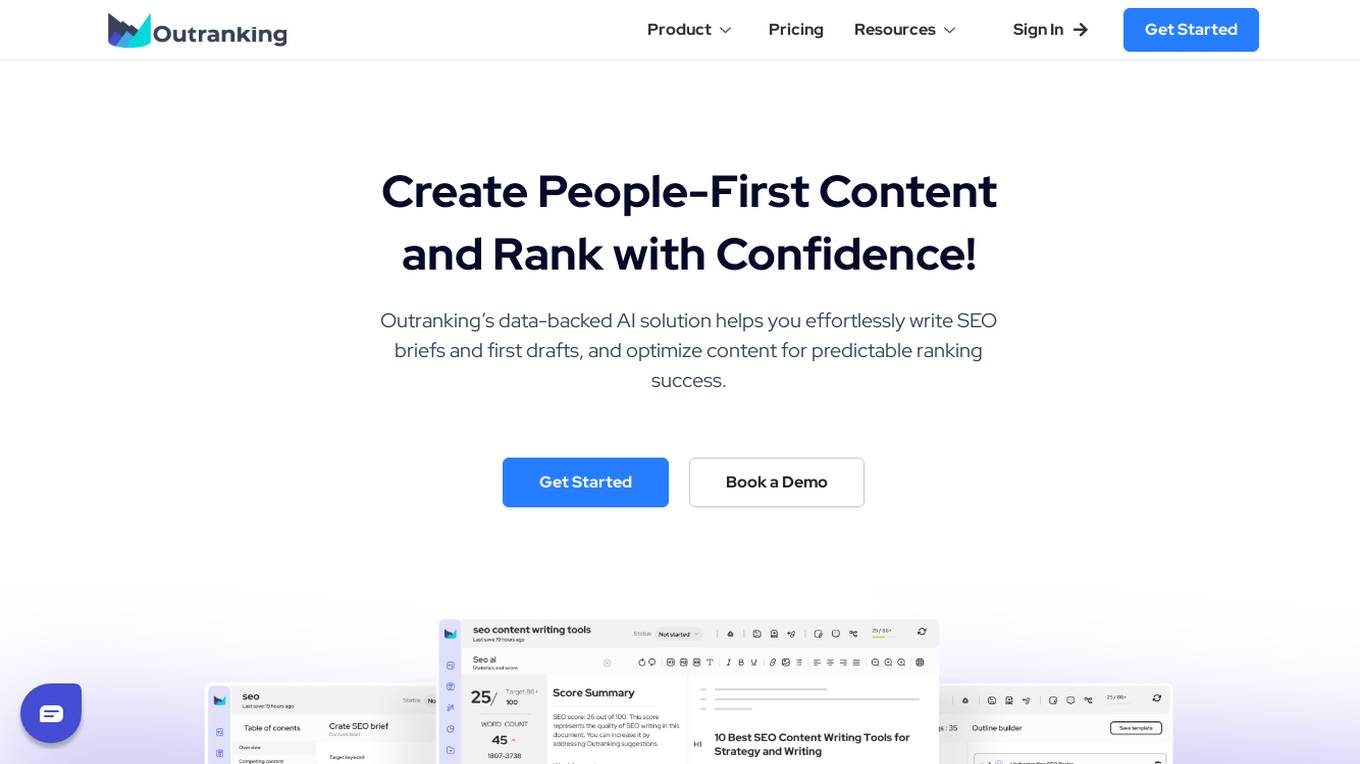
Outranking
Outranking is an AI-powered SEO content writing and optimization tool that helps users create high-quality, SEO-friendly content with ease. It leverages cutting-edge technologies like Google NLP and OpenAI GPT-4 to provide features such as AI-assisted writing, keyword clustering, content briefs, and automatic optimization. Outranking streamlines the content creation process, from generating SEO outlines to producing first drafts, optimizing content, and managing workflows. Trusted by top companies worldwide, Outranking offers a data-backed solution for achieving predictable ranking success and increasing website traffic. With a focus on user experience and efficiency, Outranking is designed to help users create content that ranks and resonates with their target audience.
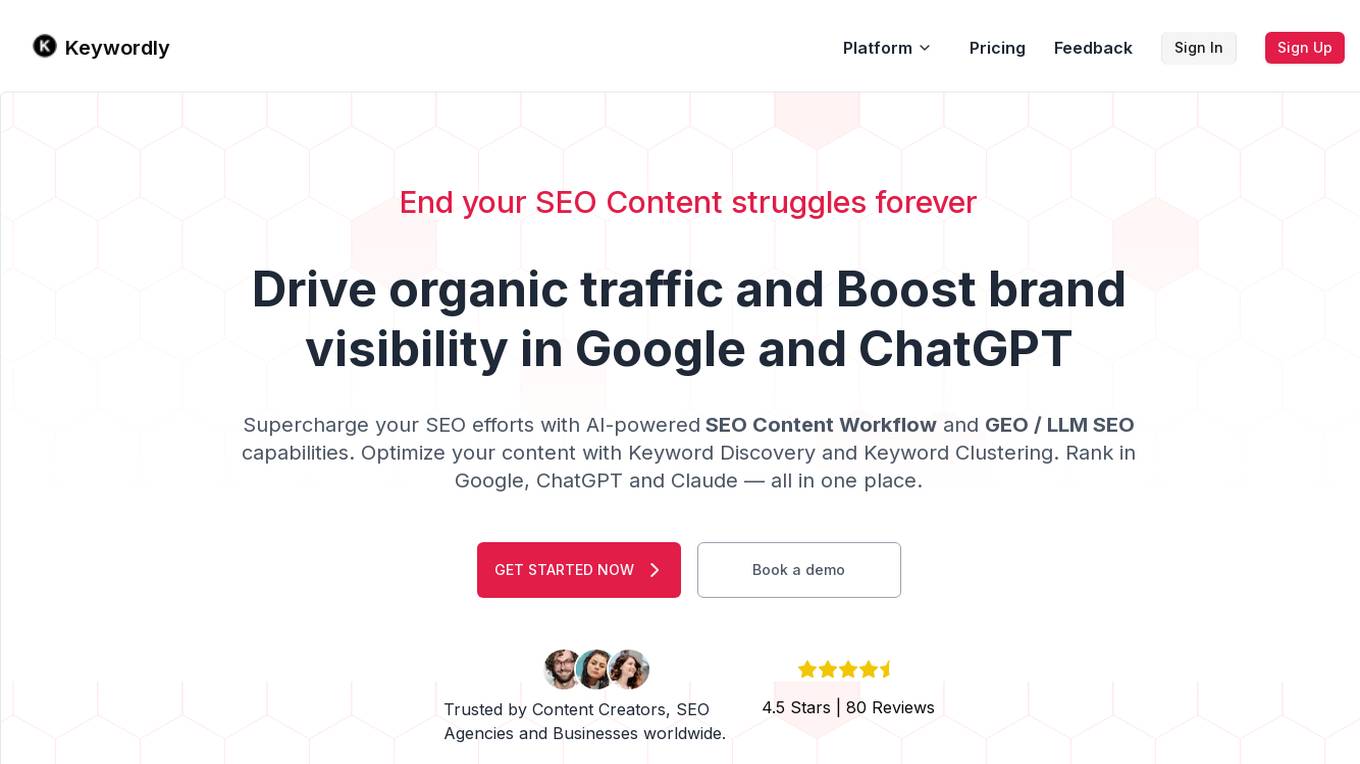
Keywordly
Keywordly is an AI-powered SEO Content Workflow Platform designed to help users optimize, write, research, and monitor content for better rankings. It offers features such as AI-powered content creation, content research and planning, content optimization, and more. With Keywordly, users can generate high-quality content aligned with keyword clusters, identify high-value keywords, repurpose and optimize existing content, and boost brand visibility on search engines and platforms like Google and ChatGPT. The platform streamlines the content creation process by providing tools for keyword discovery, clustering, and content strategy planning, helping users drive organic traffic and improve their SEO efforts.
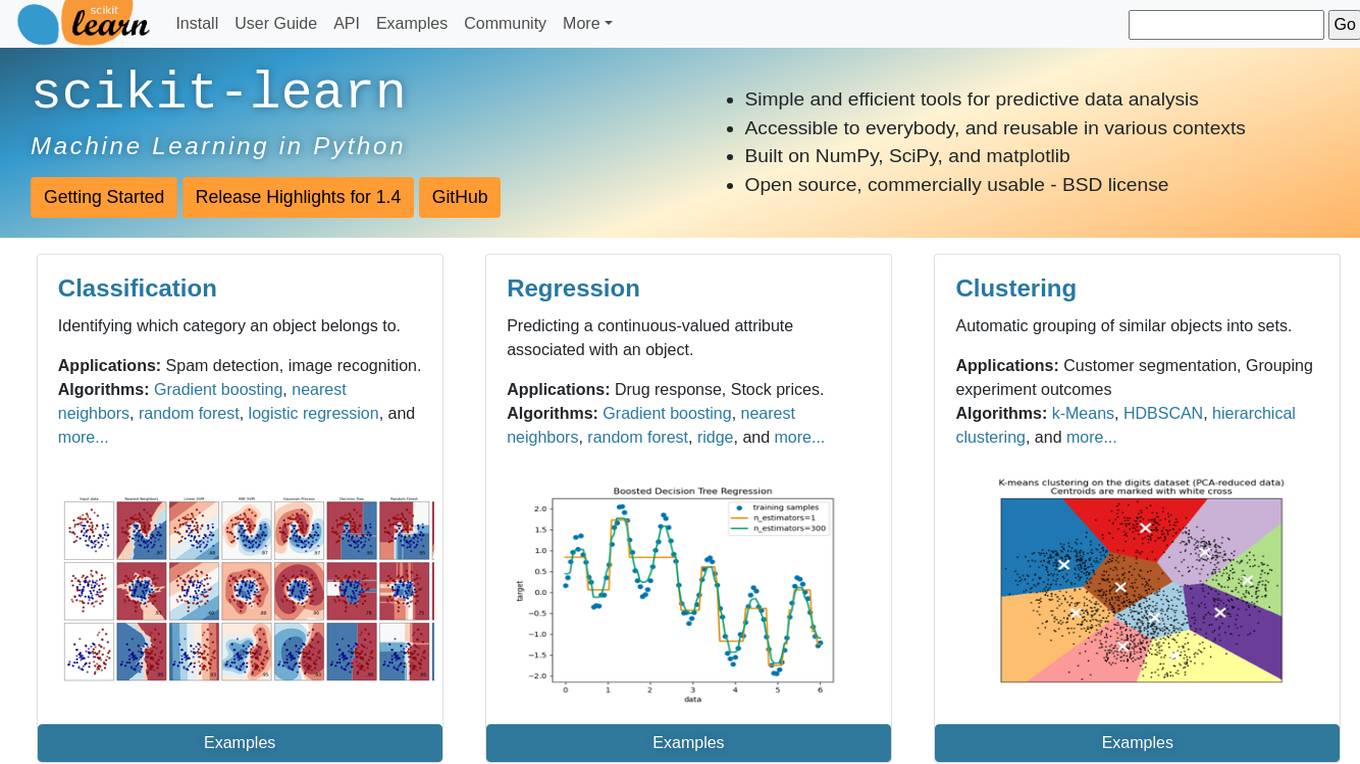
scikit-learn
Scikit-learn is a free software machine learning library for the Python programming language. It features various classification, regression and clustering algorithms including support vector machines, random forests, gradient boosting, k-means and DBSCAN, and is designed to interoperate with the Python numerical and scientific libraries NumPy and SciPy.
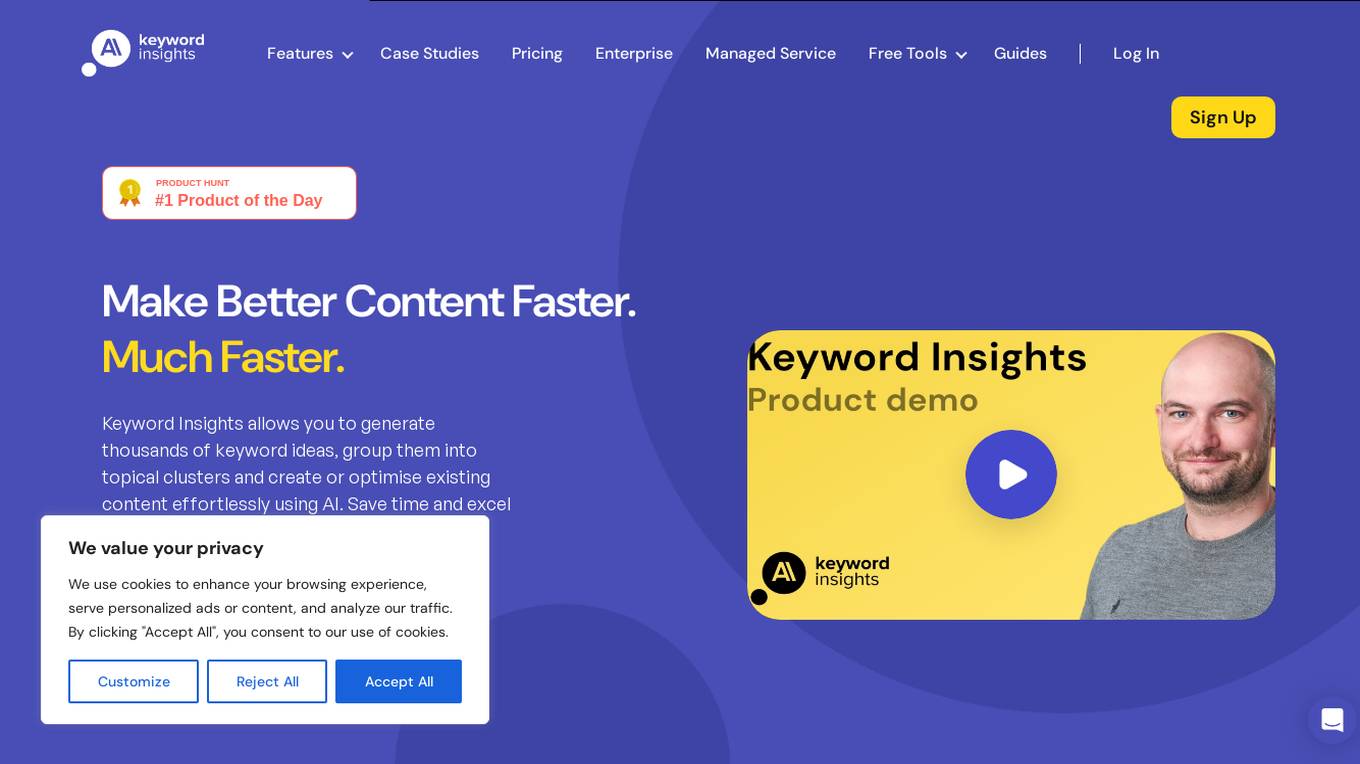
Keyword Insights
Keyword Insights is an AI-driven content marketing platform that offers a suite of tools to streamline keyword research, clustering, search intent analysis, content brief generation, and AI-powered writing assistance. The platform enables users to generate thousands of keyword ideas, group them into topical clusters, optimize existing content effortlessly, and excel in SEO without requiring expertise. Trusted by global agencies, SMBs, content marketers, and SEO experts, Keyword Insights helps users execute content marketing efforts with precision, efficiency, and effectiveness.
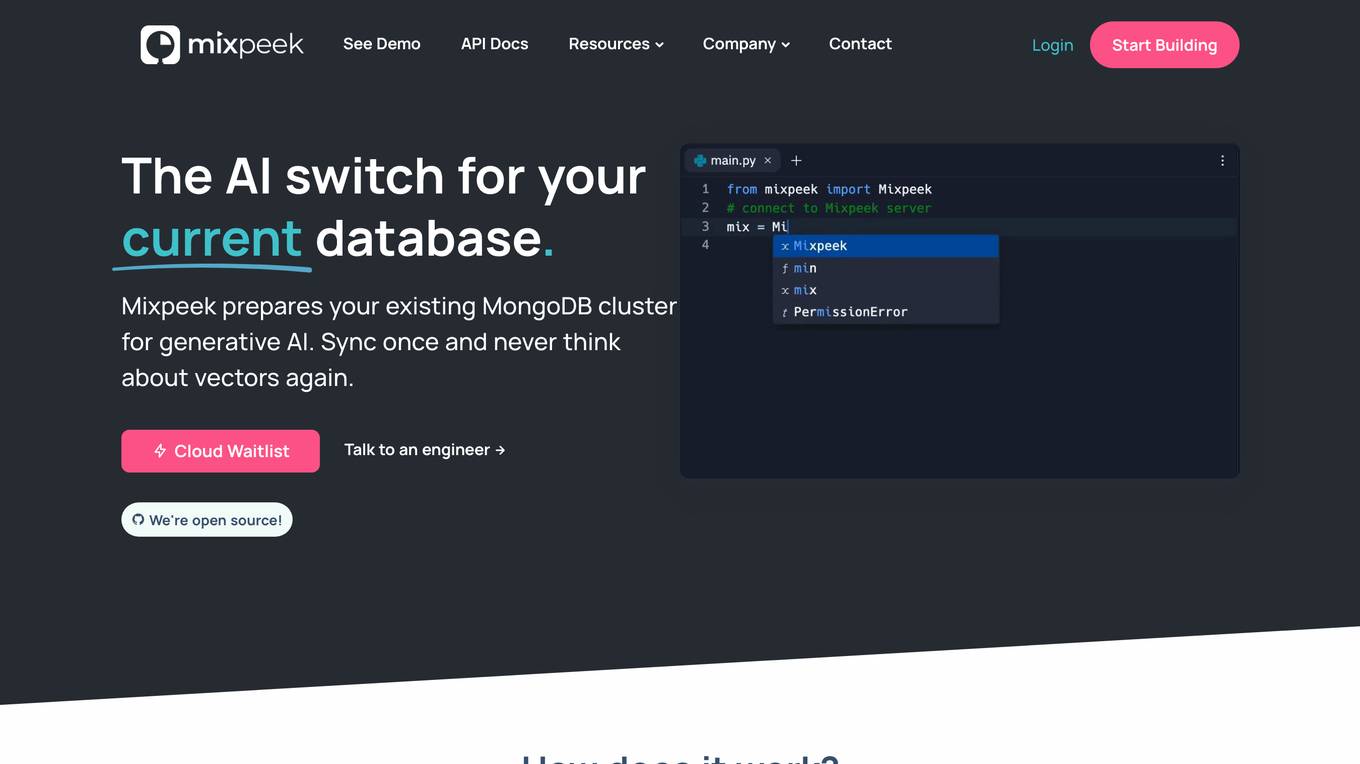
Mixpeek Solutions
Mixpeek Solutions offers a Multimodal Data Warehouse for Developers, providing a Developer-First API for AI-native Content Understanding. The platform allows users to search, monitor, classify, and cluster unstructured data like video, audio, images, and documents. Mixpeek Solutions offers a range of features including Unified Search, Automated Classification, Unsupervised Clustering, Feature Extractors for Every Data Type, and various specialized extraction models for different data types. The platform caters to a wide range of industries and provides seamless model upgrades, cross-model compatibility, A/B testing infrastructure, and simplified model management.

This Beach Does Not Exist
This Beach Does Not Exist is an AI application powered by StyleGAN2-ADA network, capable of generating realistic beach images. The website showcases AI-generated beach landscapes created from a dataset of approximately 20,000 images. Users can explore the training progress of the network, generate random images, utilize K-Means Clustering for image grouping, and download the network for experimentation or retraining purposes. Detailed technical information about the network architecture, dataset, training steps, and metrics is provided. The application is based on the GAN architecture developed by NVIDIA Labs and offers a unique experience of creating virtual beach scenes through AI technology.
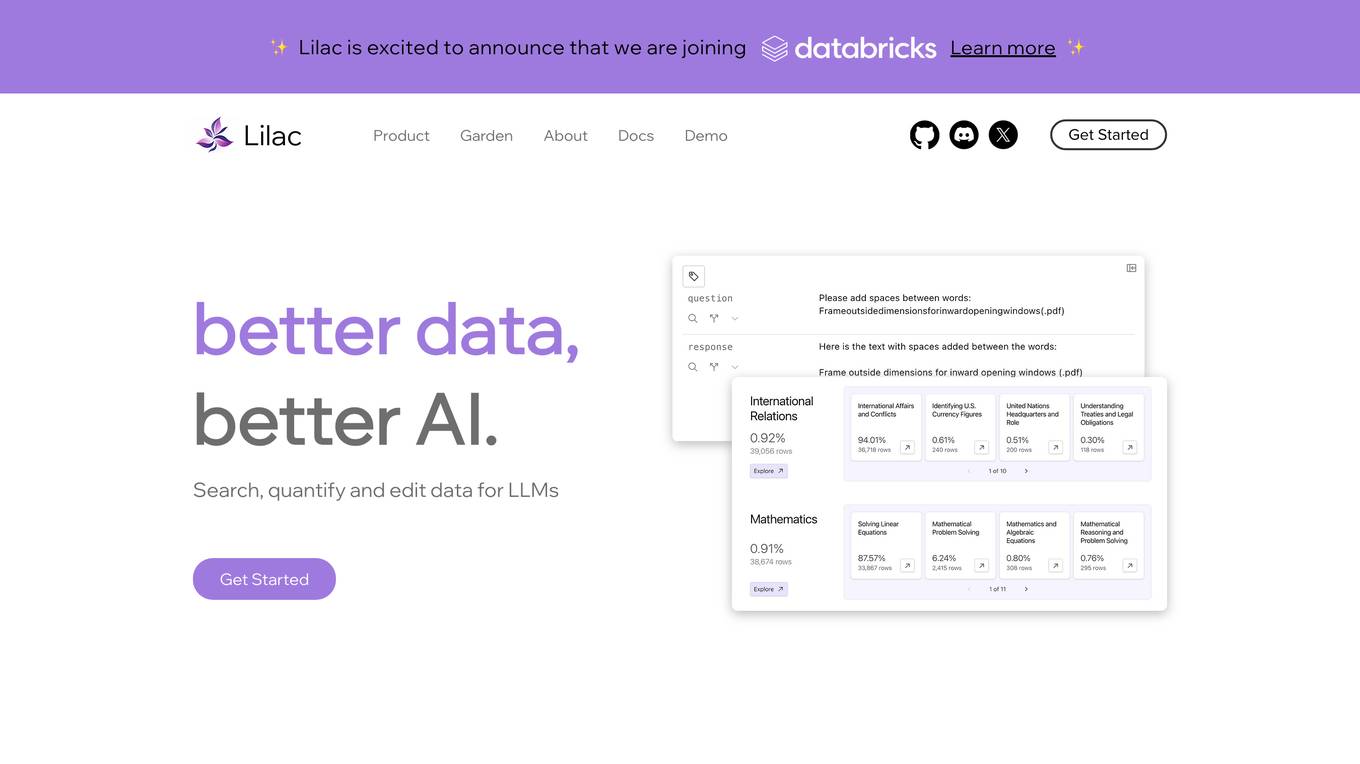
Lilac
Lilac is an AI tool designed to enhance data quality and exploration for AI applications. It offers features such as data search, quantification, editing, clustering, semantic search, field comparison, and fuzzy-concept search. Lilac enables users to accelerate dataset computations and transformations, making it a valuable asset for data scientists and AI practitioners. The tool is trusted by Alignment Lab and is recommended for working with LLM datasets.
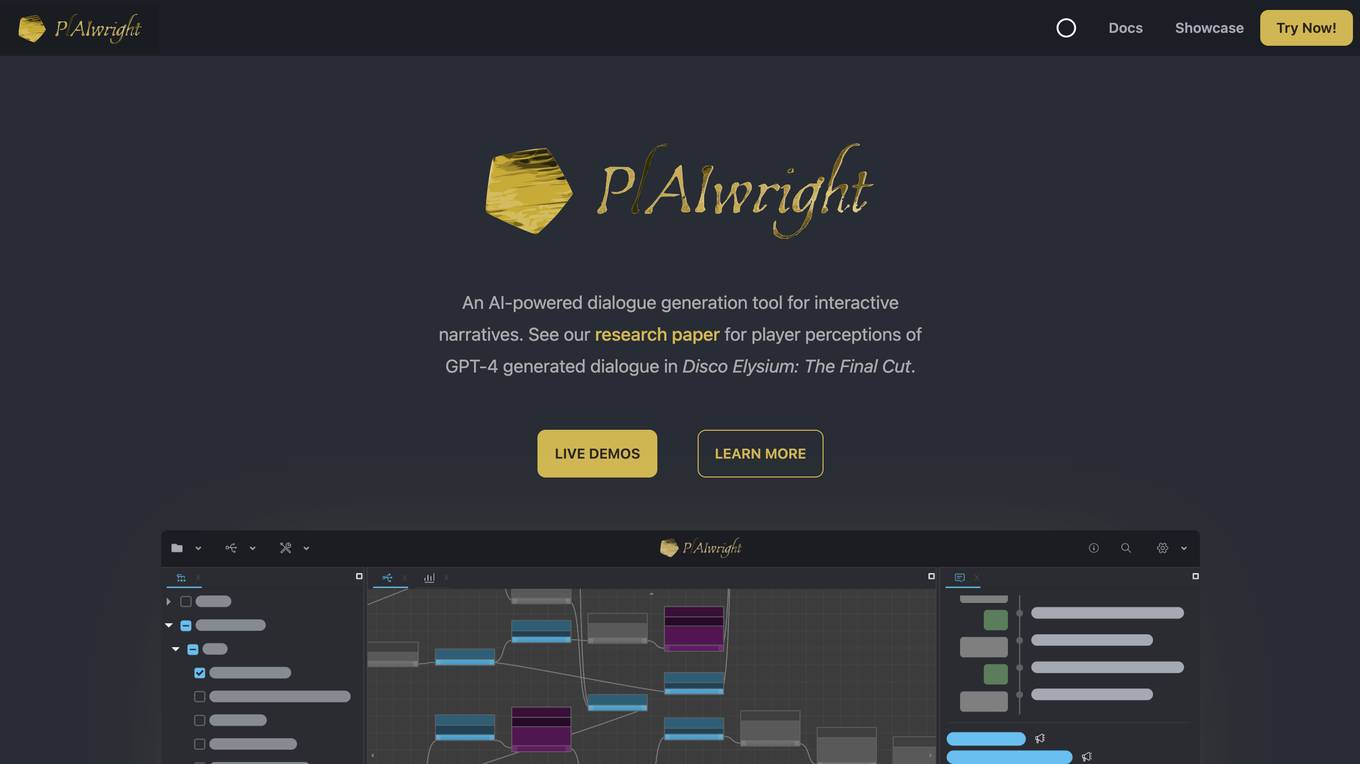
pl.aiwright
pl.aiwright is an AI-powered dialogue generation tool designed for interactive narratives. It offers features such as analyzing and clustering large dialogue graphs, dialogue generation using a mix of code and natural language, playtests for interactive dialogues, and tools for experimental analysis. The tool aims to provide a platform for creating engaging and immersive storytelling experiences through AI-generated dialogues.
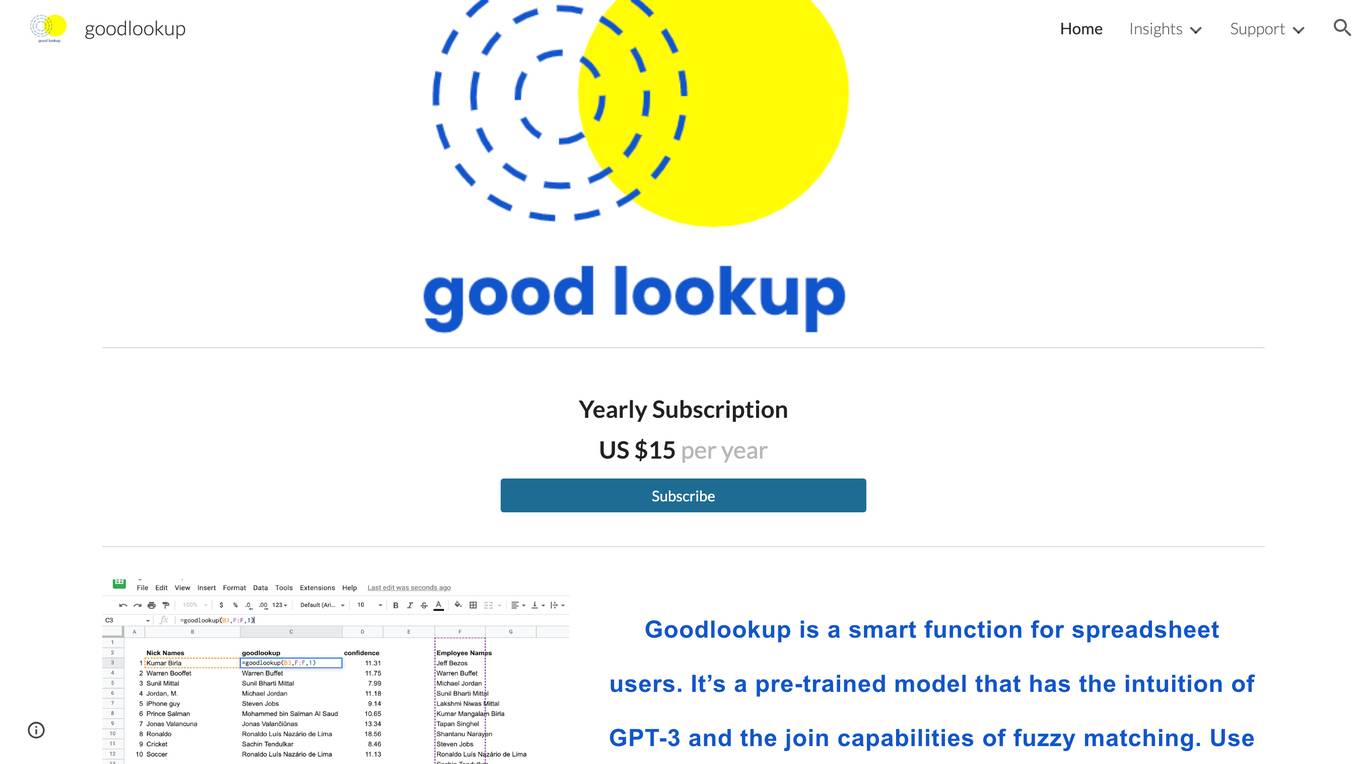
Goodlookup
Goodlookup is a smart function for spreadsheet users that gets very close to semantic understanding. It’s a pre-trained model that has the intuition of GPT-3 and the join capabilities of fuzzy matching. Use it like vlookup or index match to speed up your topic clustering work in google sheets!
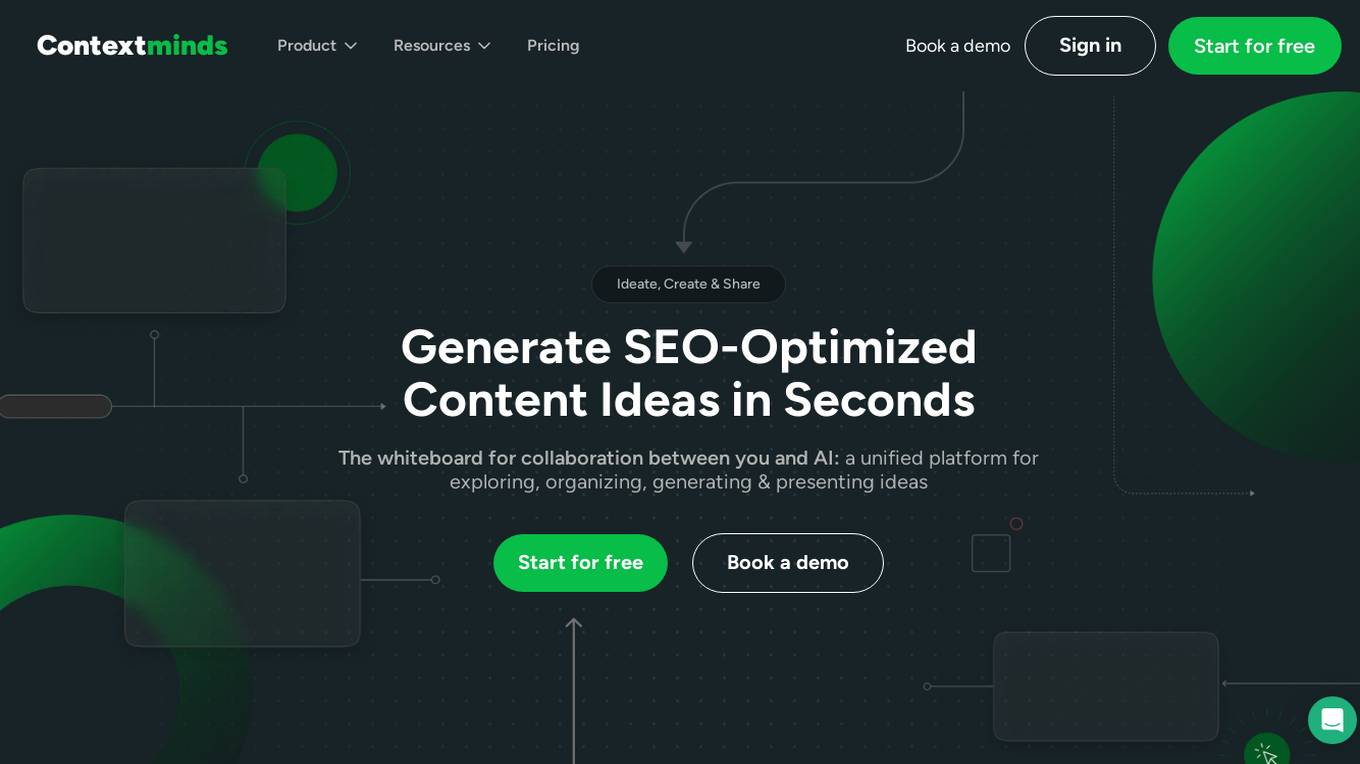
ContextMinds
ContextMinds is an AI-powered content ideation and generation tool that helps users streamline their content creation process. It offers features such as content clustering, AI whiteboard for content structure, content research, and more. With ContextMinds, users can easily organize their ideas, generate SEO-optimized content, and leverage AI assistance to enhance their content strategy. The platform simplifies the entire process from ideation to creation, making it effortless for individuals and teams to structure their content ideas effectively.

Mighty Networks
Mighty Networks is an AI-powered community platform that enables users to create and manage memberships, online courses, challenges, and events. The platform leverages AI technology, known as People Magic, to automate community building processes, enhance member engagement, and increase profitability. With features like AI-powered member clustering, revenue calculators, and branded app services, Mighty Networks offers a comprehensive solution for individuals and businesses looking to build and monetize online communities. The platform aims to simplify the community creation process by providing tools to quickly launch and grow a successful digital business.
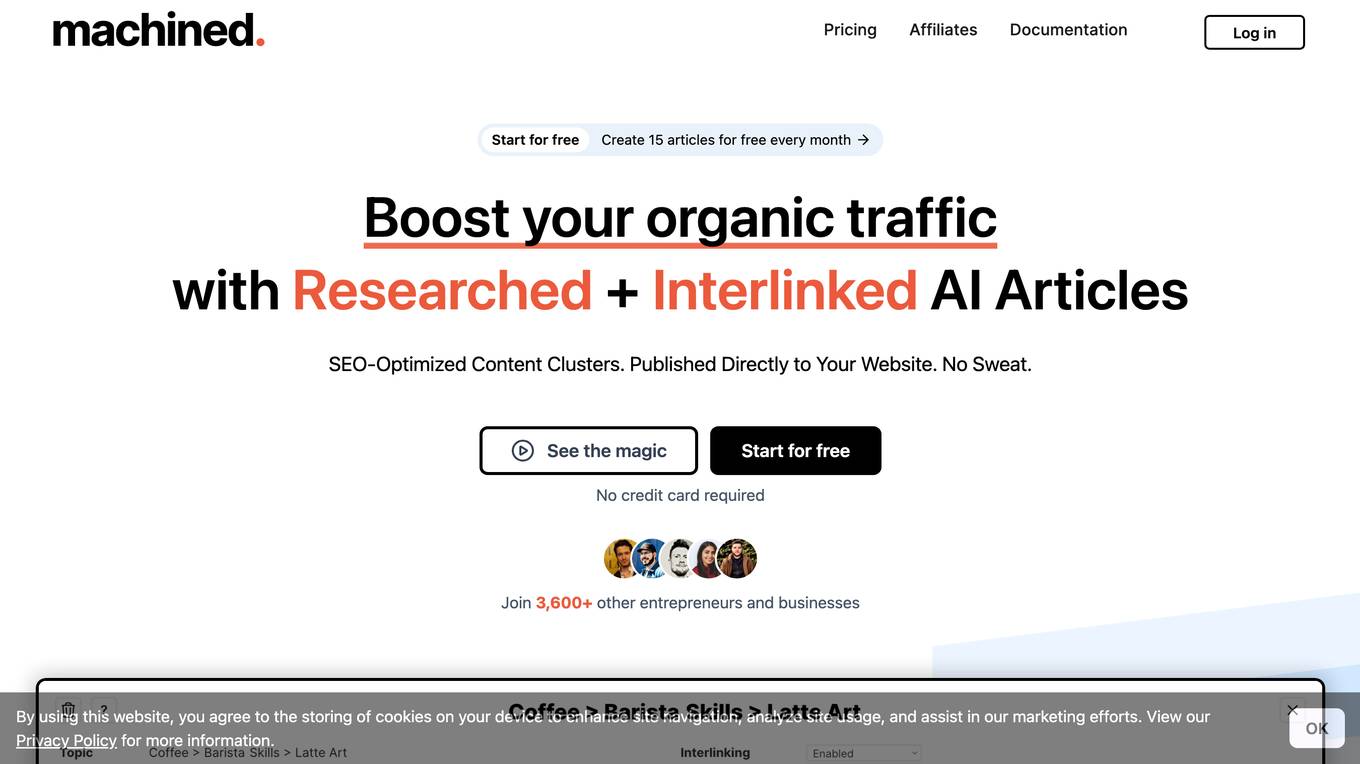
Machined.ai
Machined.ai is an AI-powered platform that automates the creation of content clusters for SEO optimization. It generates a large number of informational articles on any topic, structured and interlinked to boost search engine rankings. The platform fully automates keyword research, clustering, content writing, and interlinking processes. With advanced AI models, Machined.ai produces high-quality, human-like content in over 120 languages. It offers features like automated SEO, keyword research, clustering, internal linking, topical research, references, citations, external linking, and direct publishing to WordPress and Webflow. Machined.ai is cost-effective, scalable, and designed for startups, niche site owners, and programmatic site builders.
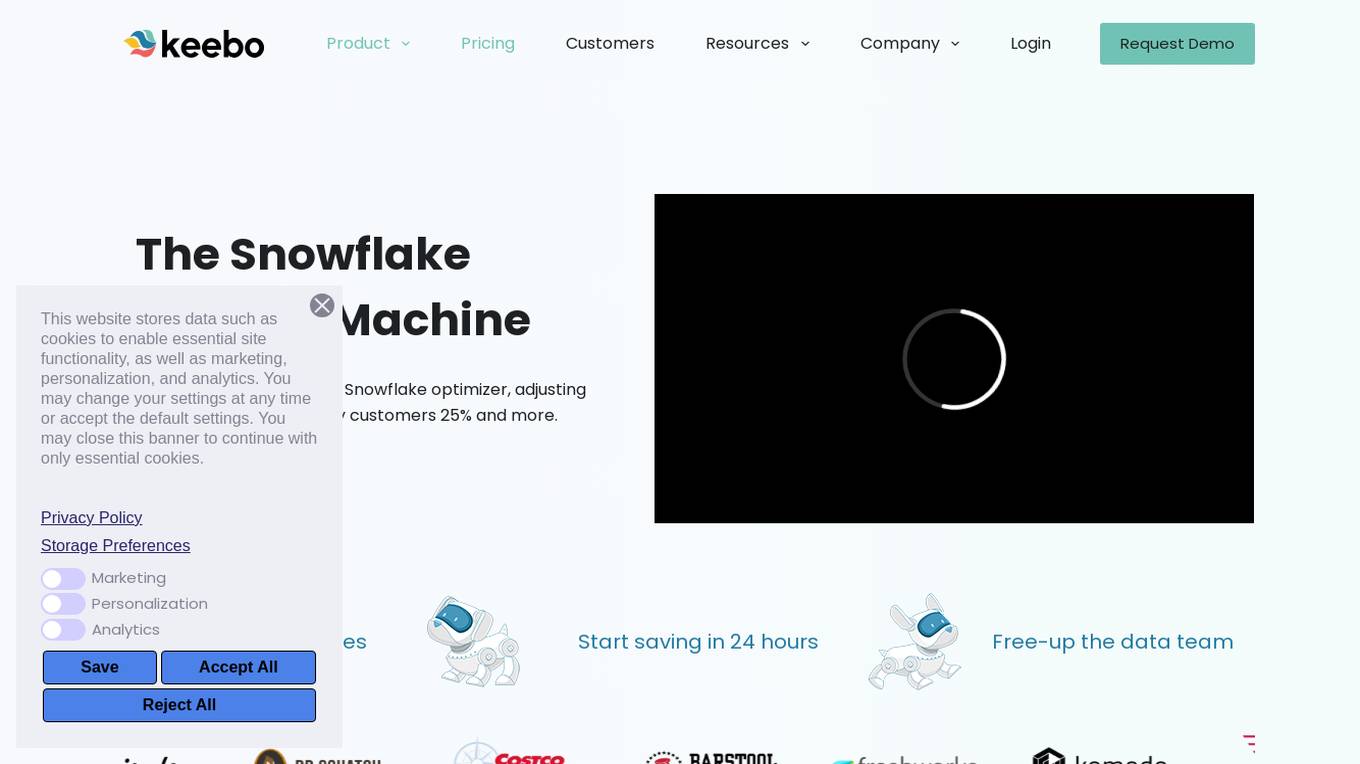
Keebo
Keebo is an AI tool designed for Snowflake optimization, offering automated query, cost, and tuning optimization. It is the only fully-automated Snowflake optimizer that dynamically adjusts to save customers 25% and more. Keebo's patented technology, based on cutting-edge research, optimizes warehouse size, clustering, and memory without impacting performance. It learns and adjusts to workload changes in real-time, setting up in just 30 minutes and delivering savings within 24 hours. The tool uses telemetry metadata for optimizations, providing full visibility and adjustability for complex scenarios and schedules.
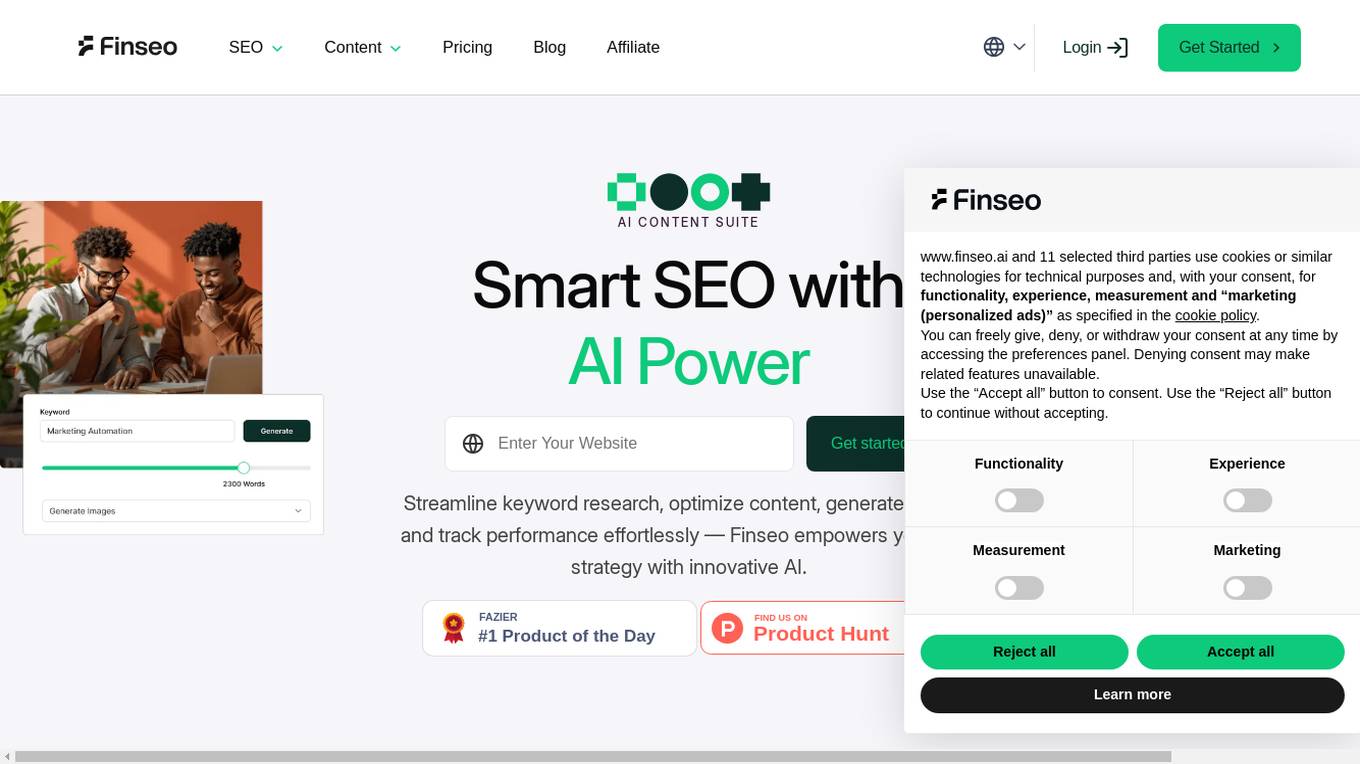
Finseo.ai
Finseo.ai is an AI-powered platform that offers comprehensive SEO optimization tools, content creation assistance, and analytics features. It streamlines keyword research, content optimization, visual generation, and performance tracking to enhance SEO strategies. With innovative AI technology, Finseo empowers users to unlock insights, boost relevance, and drive success through historical data analysis, keyword clustering, and content automation. The platform combines AI and automation to redefine possibilities in content creation, SEO, and internal linking, enabling users to achieve more with less effort.
2 - Open Source AI Tools
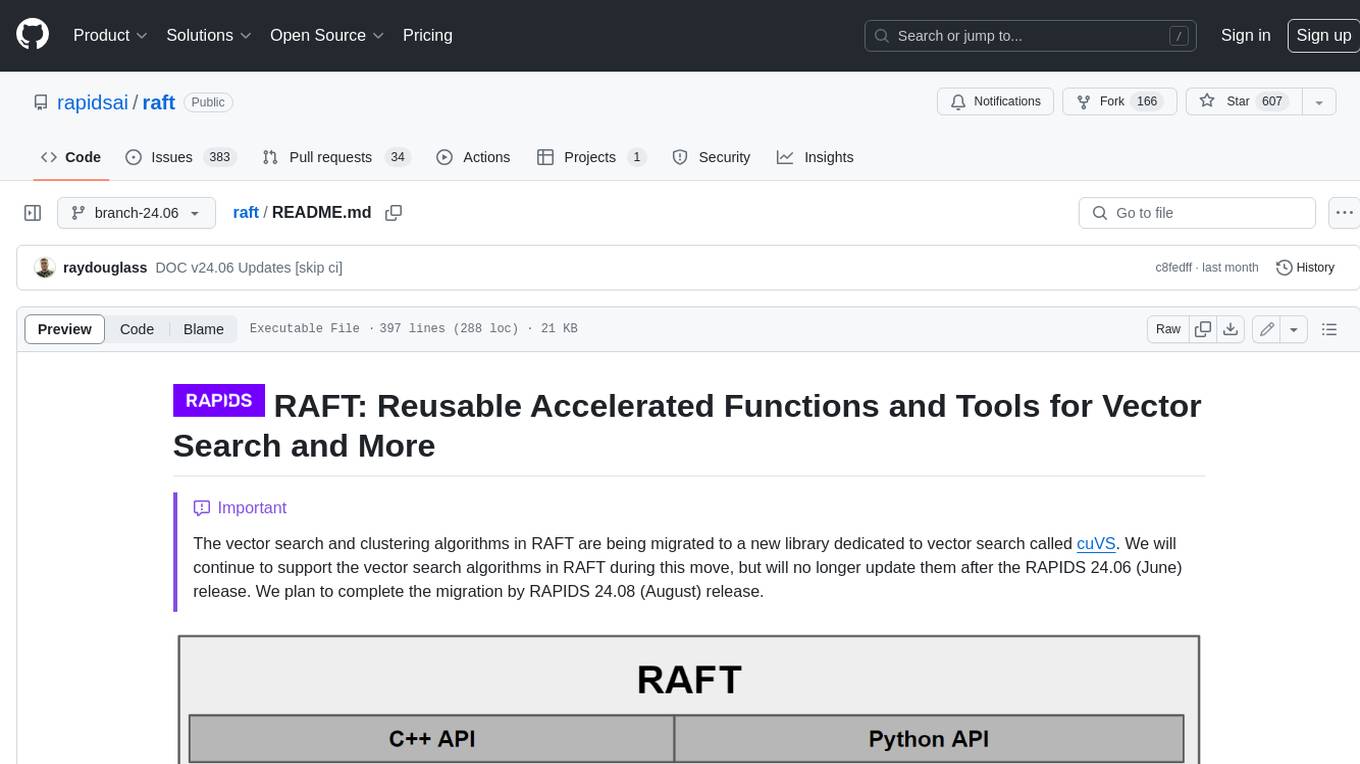
raft
RAFT (Reusable Accelerated Functions and Tools) is a C++ header-only template library with an optional shared library that contains fundamental widely-used algorithms and primitives for machine learning and information retrieval. The algorithms are CUDA-accelerated and form building blocks for more easily writing high performance applications.
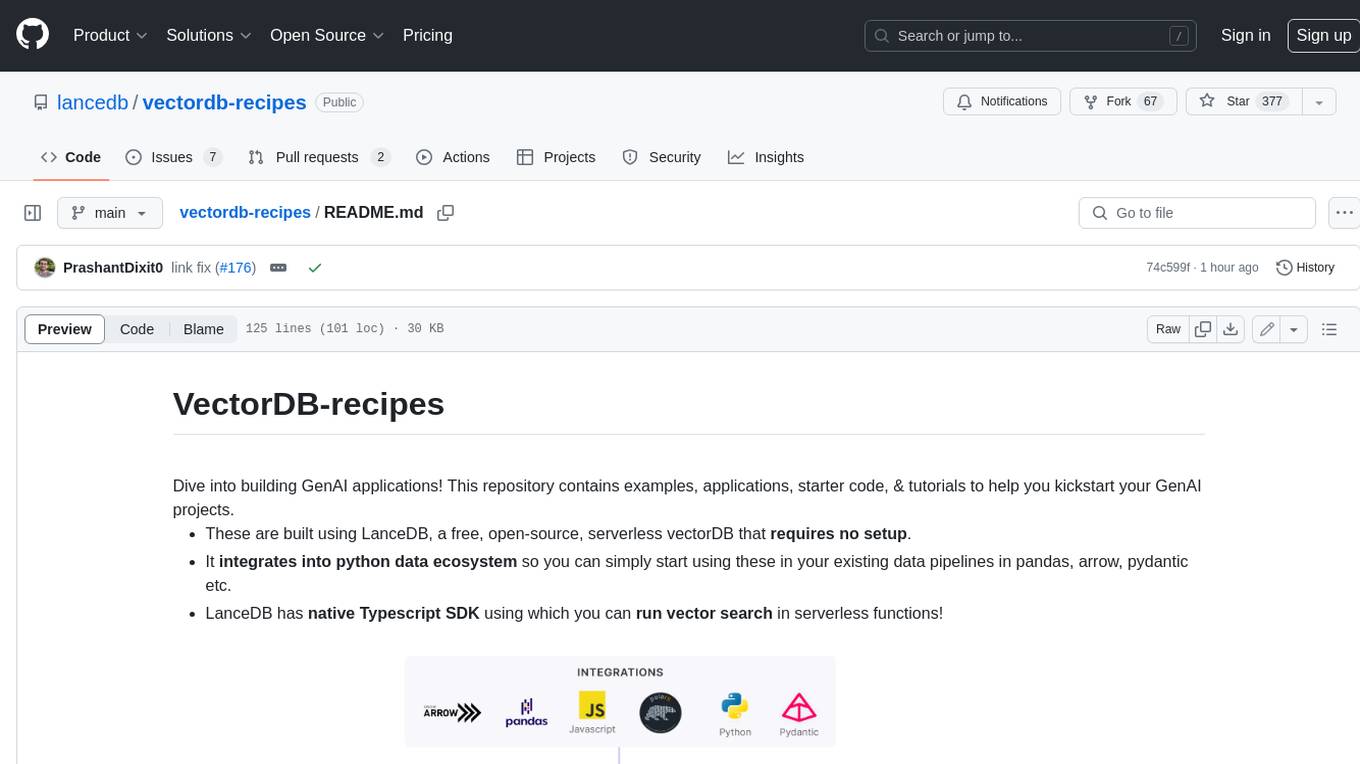
vectordb-recipes
This repository contains examples, applications, starter code, & tutorials to help you kickstart your GenAI projects. * These are built using LanceDB, a free, open-source, serverless vectorDB that **requires no setup**. * It **integrates into python data ecosystem** so you can simply start using these in your existing data pipelines in pandas, arrow, pydantic etc. * LanceDB has **native Typescript SDK** using which you can **run vector search** in serverless functions! This repository is divided into 3 sections: - Examples - Get right into the code with minimal introduction, aimed at getting you from an idea to PoC within minutes! - Applications - Ready to use Python and web apps using applied LLMs, VectorDB and GenAI tools - Tutorials - A curated list of tutorials, blogs, Colabs and courses to get you started with GenAI in greater depth.
6 - OpenAI Gpts
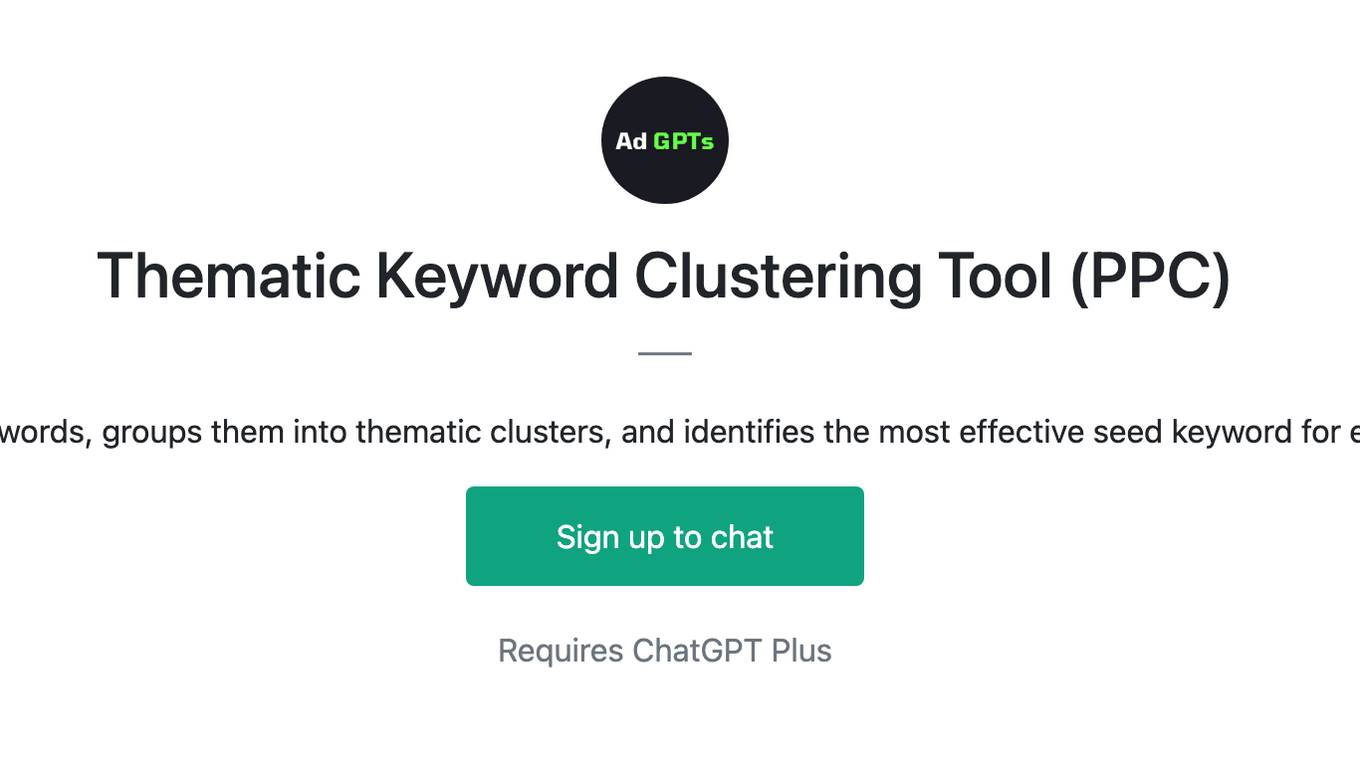
Thematic Keyword Clustering Tool (PPC)
Analyzes keywords, groups them into thematic clusters, and identifies the most effective seed keyword for each group.
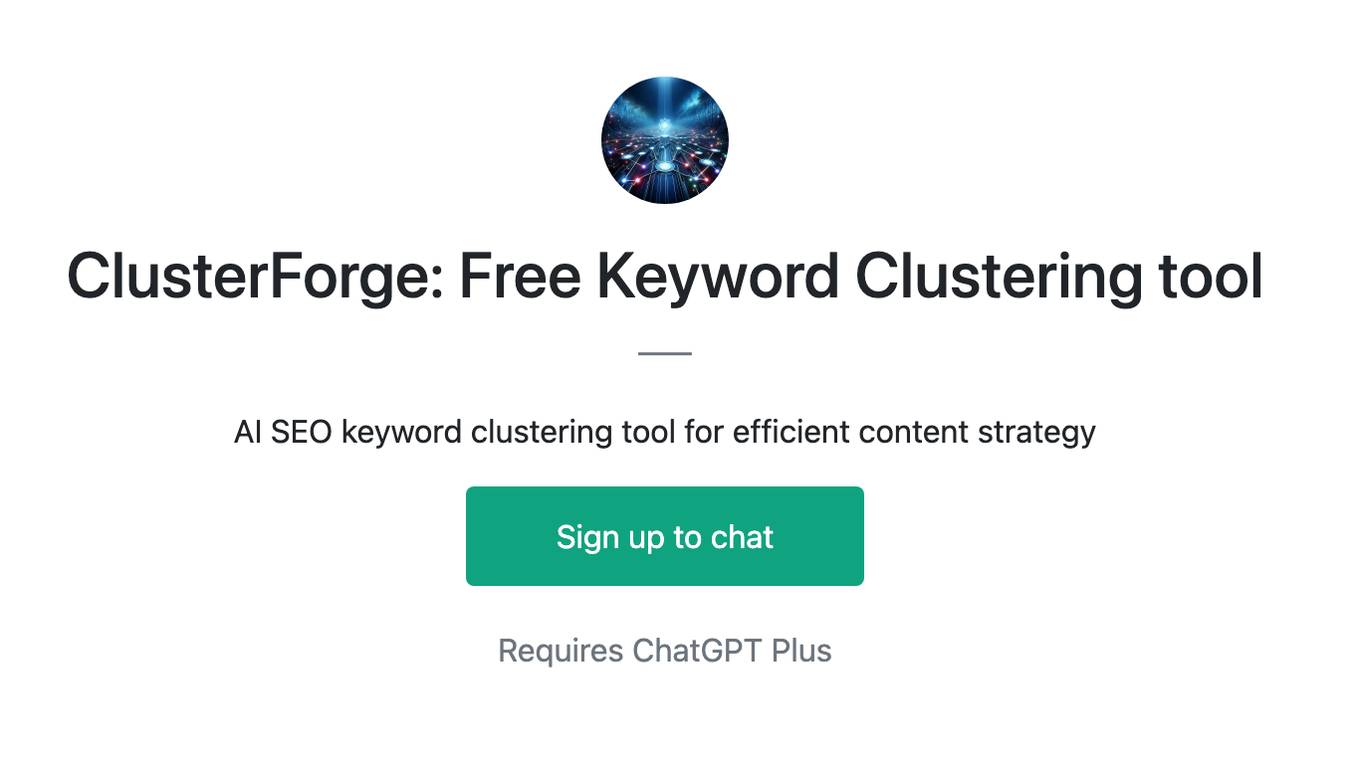
ClusterForge: Free Keyword Clustering tool
AI SEO keyword clustering tool for efficient content strategy
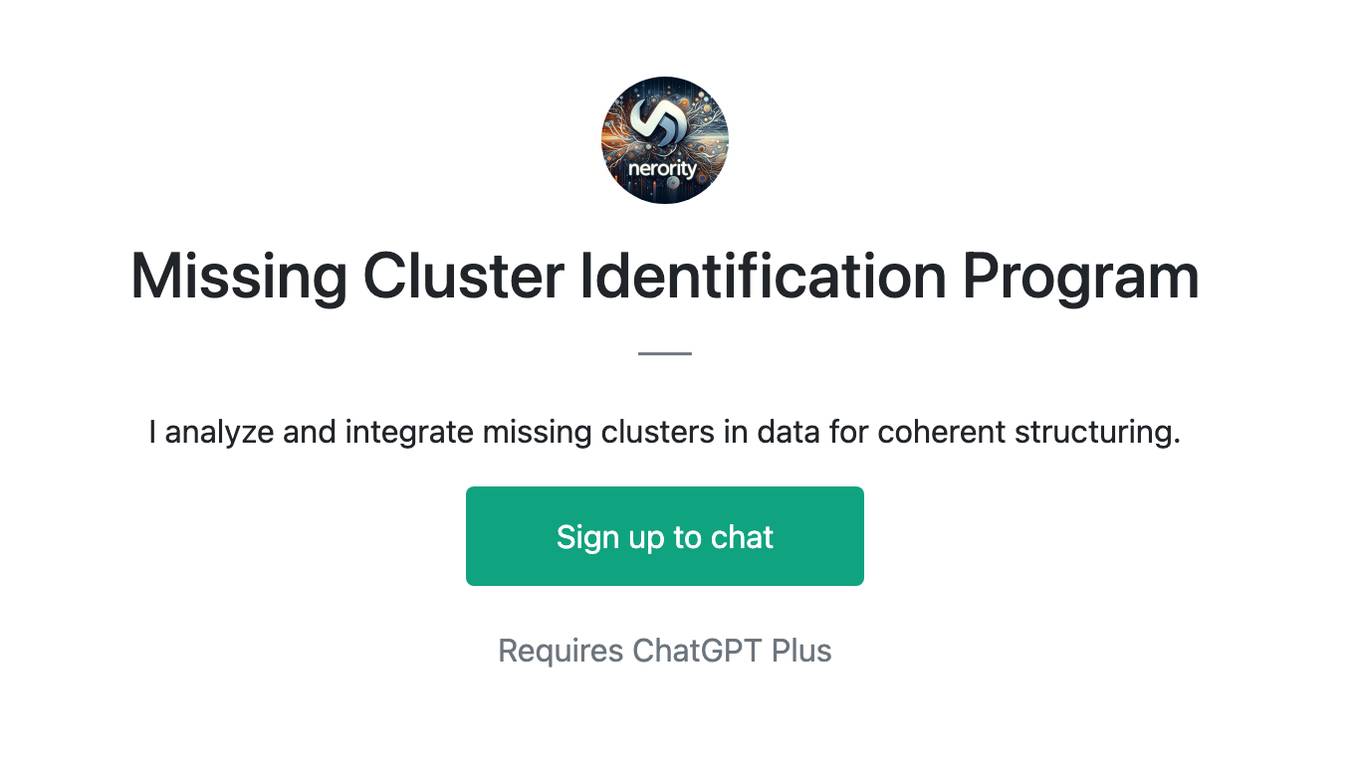
Missing Cluster Identification Program
I analyze and integrate missing clusters in data for coherent structuring.
